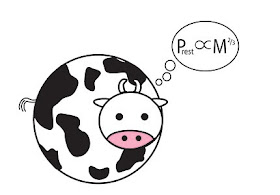Bill Clinton rode to office on the back of “It’s the economy, stupid.” The gift of a well-turned phrase dumping untold numbers of votes into his lap. It was of course, like all pithy aphorisms, a gross simplification... and so is my title for this blog post.
Stephen King observes that popular novelists are never "asked about the language" when queried by admiring fans. He slapped that in the forward and went on to write a whole book on writing called... “On Writing”
It’s a pertinent observation from the author’s side of the signing table and worthy of note to would-be writers. It’s also perfectly reasonable behaviour from the reader in the queue. After all, few music fans on cornering their pop-star in an elevator proceed to interrogate them about notes and key changes.
Prose is the story-delivery mechanism and the story is king. People talk about the story years later, the plot, the characters – they’re less likely to swap lines from the text. In the Author Top Trumps I ran recently the two highest scorers in ‘prose’ (Rothfuss and Gaiman) were the two lowest scorers in ‘wow factor’.
And yet...
...prose is the story-delivery mechanism rather like wine/beer/spirits are the alcohol delivery mechanism. Getting drunk isn’t the only reason to drink. Some people really do like the taste. Similarly the story isn’t the only reason to read.
Poetry leaves many people cold. Poetry books do not sell that well. Poetry readings rarely pack arenas. But poetry is a very condensed and powerful form that few chose to consume neat. If you add poetry to prose it’s like moving from along a scale from light beer toward whiskey, and when it’s all poetry then that’s absinthe right there, and not so many have the stomach for it.
However, there are many people (like me) who are tone deaf... but we still love music. Similarly there are many people who wouldn’t read poetry for pleasure but would rather the prose in the stories they read was seasoned with a little of whatever sets poetry alight.
The reader may not notice the language. In most cases it’s a good thing that they don’t. But well written prose, powerful and evocative prose, does its work invisibly, sinking the story hooks deeper, placing the reader in the scene, making them taste it, smell it, making them wince, making them care.
Lewis Carroll advised, “Take care of the sounds and the sense will take care of itself.” Oscar Wilde that, “Behind the perfection of a man’s style, must lie the passion of a man’s soul.” The words deliver the story – the prose carries the passion. Poetry is a spice, to be added with care, neither under nor overused. T.S. Eliot, master of the prose poem, said, “prose that is altogether alive demands something of the reader that the ordinary novel reader is not prepared to give.” Which is fine and well if you’re not hoping to sell many books – but if you’d like the ordinary novel reader to have a good time reading your work then balance is required.
In the end it's the story, stupid. I know this, and as an author I want to write a great story. For me though (personally as opposed to financially) I want to write great lines, great paragraphs, and great pages. This labour of love is wasted on the large majority of readers. I know this, but it doesn't stop it being of prime importance to me. There's a magic that can be injected into a single sentence and give that handful of words space in the imaginations of a million people. I have found few pleasures greater than the search for that magic.
I leave you with lines from Tolkien that will stick with this reader as long as the story:
I leave you with lines from Tolkien that will stick with this reader as long as the story:















